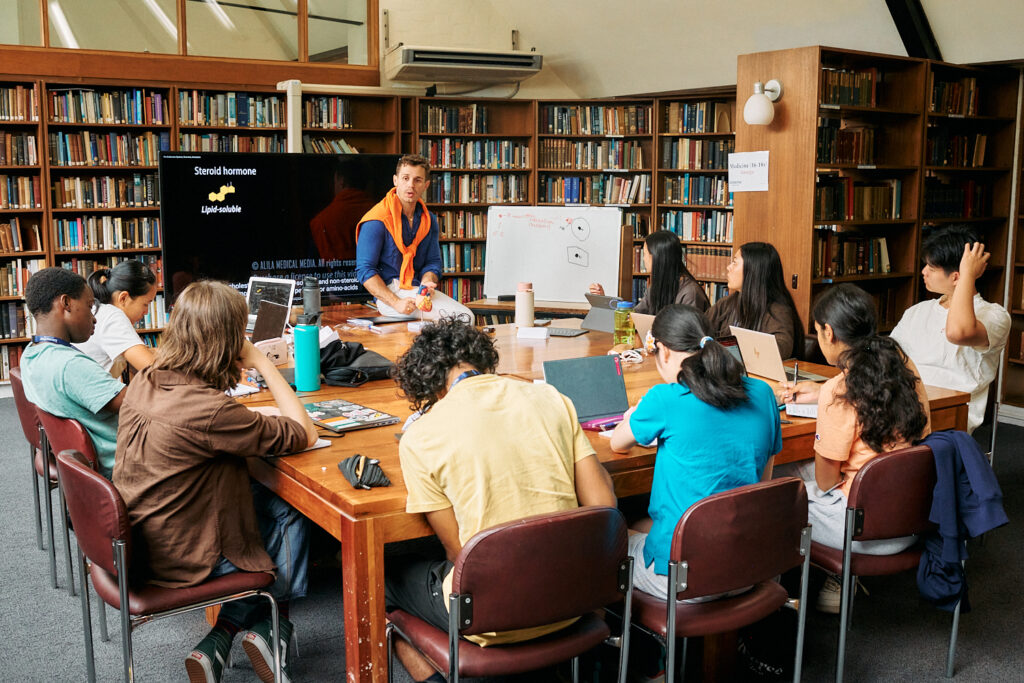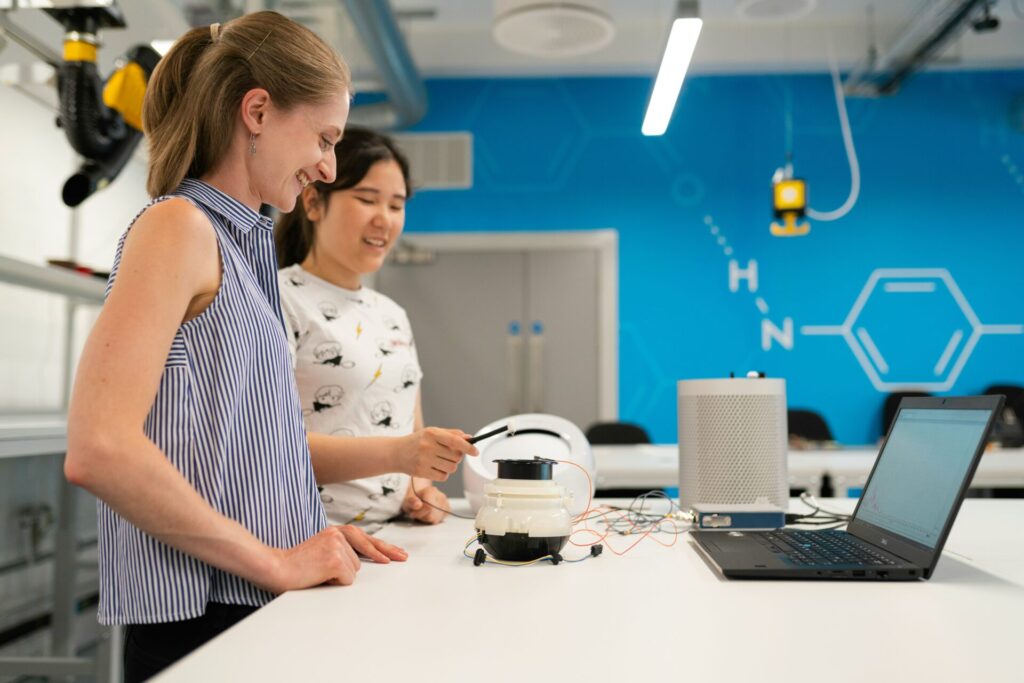As the world struggles to manage the current pandemic, we are surrounded by the terrible news of coronavirus’s impact on strangers, friends, and family.
There is no doubt that this crisis is devastating, and we are all hoping for a swift resolution to the problem.
It is straightforward to focus on the negative impact of the virus on our education. We cannot go to school, sit our exams, and take part in many of the activities that further our interest in a subject.
However, maintaining this mindset of only noticing the negatives is detrimental to our mental health, but it is also not reflective of the whole situation. If you look for them, there are opportunities to be found to further our education.
Learning self-sufficiency
Students have been forced to switch from a physical classroom learning environment to a virtual one all over the world. For most people, this marks a significant change.
You must adapt your ‘classroom behaviour’ to be considerate of your classmates. You have to make a much more conscious effort to avoid the distractions surrounding you at home, where there were probably fewer at school.
Related Read: What Are The Benefits of Studying Abroad?
You have to be accountable for the work you complete because the teacher can’t walk around the class to see whether you are on task. In short, you have had to become self-sufficient.
Independence and self-sufficiency are excellent attributes to develop at a young age. They are associated with maturity, and generally, universities operate on the assumption that you can study with minimal input from teaching staff.
Stats Say Self Sufficiency Is Key!
The average undergraduate attends fewer than 12 contact hours with academic university staff per week in the UK.
Yet, for every 20 credits of your degree (most courses require 60 ECTS per year), you are expected to complete up to 600 hours of work. At university, you will need to be able to work independently for sustained periods.
This is often a struggle for freshers and can contribute to the culture shock that many students experience when they start their undergraduate degrees.
You, however, will be uniquely prepared for this level of independent study, having had practice in advance. You will be more aware of your working habits and different study methods that work best for you.
Most high school students only really experience this when they are revising for their exams. However, the purpose of revision and the study methods you use differ from general, long-term study.
With this in mind, this is an excellent opportunity for you to try different study methods. Evaluate your performance and figure out what works best for you.
As an individual, your learning process will be different to that of your friend’s, but maybe you hadn’t realised that before now.
View these unique circumstances as a means for you to explore how you can achieve your full academic potential and continue developing your skills as an independent learner.
Building your brand
The ability to maintain your focus and continue learning in these challenging circumstances is not just beneficial for your education now. You are developing life skills.
Every time you face a challenge and adapt to overcome it, you enhance your problem-solving skills and build your resilience.
Why Building Your Brand Is Important For Employers?
Employers ranked resilience as one of their most sought-after attributes in new employees.
The ability to respond to a setback with positivity and a solution-based approach is exactly what a company needs to help it continue to progress and grow.
Employers are not alone in this.
Universities also recognise that significant challenges are moving away from home, learning in a new style, settling into a new environment, and building a new social network from scratch.
Universities And How They Make Sure YOU Are The One Building Yourself
You combine all of these and more in your first year of university. Occasionally you will encounter bumps in the road in addition to these challenges that set you back, and the onus is on you to provide a solution to the problem.
The ability to recover from these setbacks and maintain your passion for learning is highly prized among top UK universities. Despite all the assessments, universities do want you to graduate, honest!
Universities accept students who will further their self-interests. That means they take in students who will maintain or improve their academic standing and will be successfully employed and a credit to the university.
This boosts their statistics, rankings, and their career prospects for their degree.
Why Do I believe Universities Should Provide More Support?
This is a cynical view of universities.
They are also fantastic centres of intellectual exploration and self-discovery. However, it would be best if you always remembered that you bring value to your university.
You are not the only one benefitting from your decision to study at that institution. The university stands to gain from your presence in more than just tuition fees. The more desirable your student profile, the more a university will value your application.
In these exceptional times, you are learning to manage your time effectively. You are demonstrating that you can maintain your productivity despite setbacks, and you are making clear that you can make lemonade when life gives you lemons.
Keep track of specific examples where you demonstrate these skills and others. Think about how you can showcase these to universities in the future. True, most people are in the same situation as you, but not everyone has the strength to look for the silver lining.
Keep calm and look for the positives
It can be easy to despair at this time. There is a constant stream of bad news, sad stories, and false information circulating online and in the media, and it seems almost impossible to avoid it.
The impact that coronavirus has had on how you are learning can be tarnished with the same gloomy tone. However, it is not fair to assume that the changes to your current education are detrimental to your academic future.
For one, most high school students worldwide are facing the same or similar challenges to you.
Universities are responding to accommodate the effects that this may have had on your exam preparation. This means they will be better placed to assess the unique circumstances of your application as, more than ever, grades will not necessarily be representative of an individual’s potential.
In addition, many charities, education companies and other providers have responded by increasing the range and quality of resources that they offer online.
While many are offered to teachers to deliver as lessons, there are many more directed at young students to support self-study and development.
These again present an opportunity for you to enhance your portfolio and showcase your status as a motivated, engaged and positive young academic.
Finally, do not underestimate the effort that your teachers are investing in your online education.
Your success drives your teachers. They want nothing more than for you to achieve to the absolute best of your ability and work tirelessly to ensure that you have everything you need to succeed.
While you may not be sat in a classroom environment that was reassuringly familiar, your teachers are increasing their efforts to provide you with the knowledge and tools you need.
Combine this extraordinary effort from your teachers with your newly-enhanced ability to learn independently, and your academic productivity should soar!
So, as we continue to watch the news, and look for signs that we are emerging from this crisis, remember to stay positive.
There are opportunities for personal development to be found in every challenge that we face. Stay focused on your education and do not give it up as a lost cause.
Just because your learning environment is different does not mean that your potential to learn has been lessened in any way. Many of the skills and attributes you develop in adversity are highly prized by universities and future employers.
While we are undoubtedly facing unique challenges, this means we have unique opportunities to recover and thrive.
Join the Immerse Education 2025 Essay Competition
Follow the instructions to write and submit your best essay for a chance to be awarded a 100% scholarship.


























